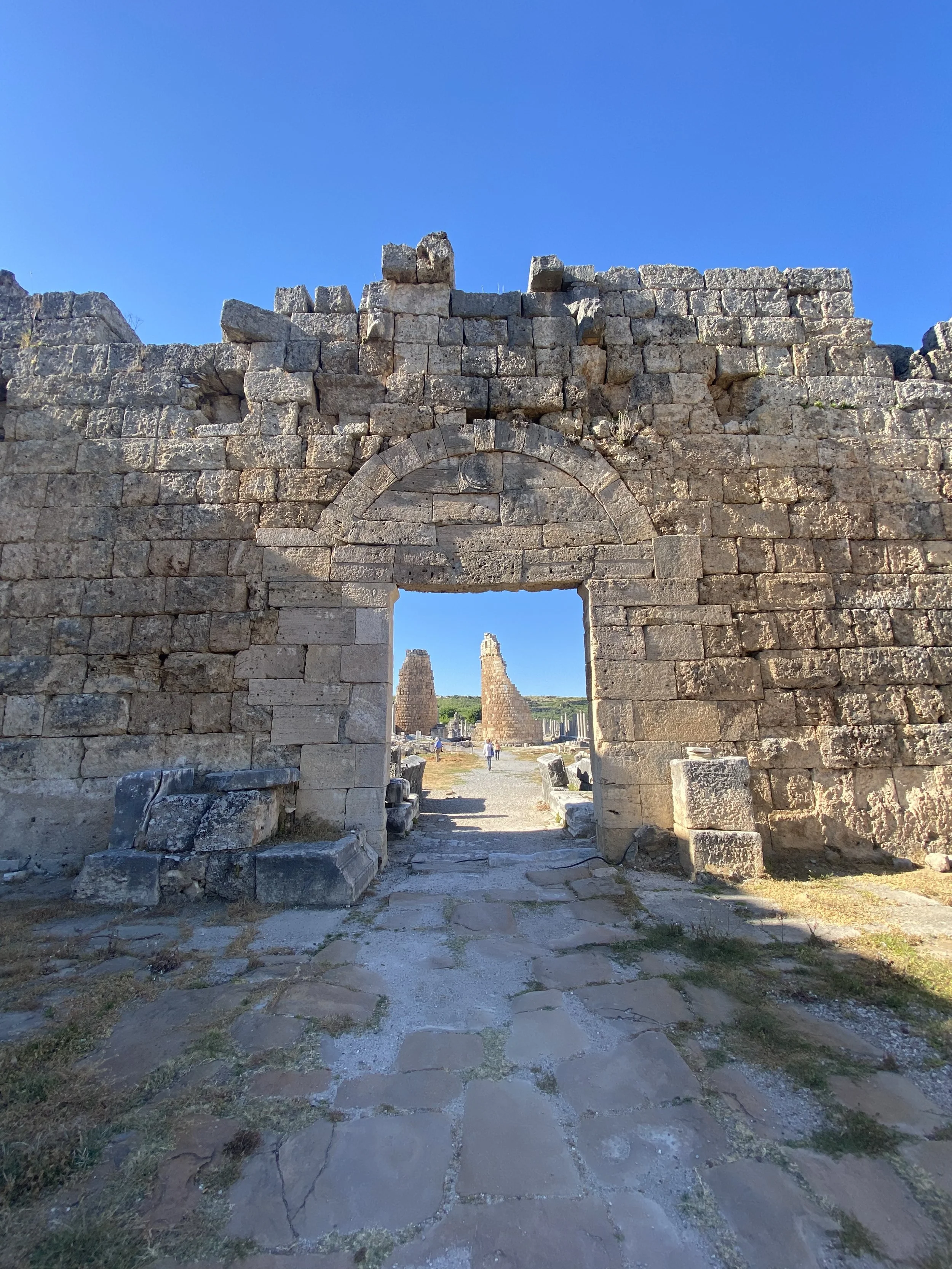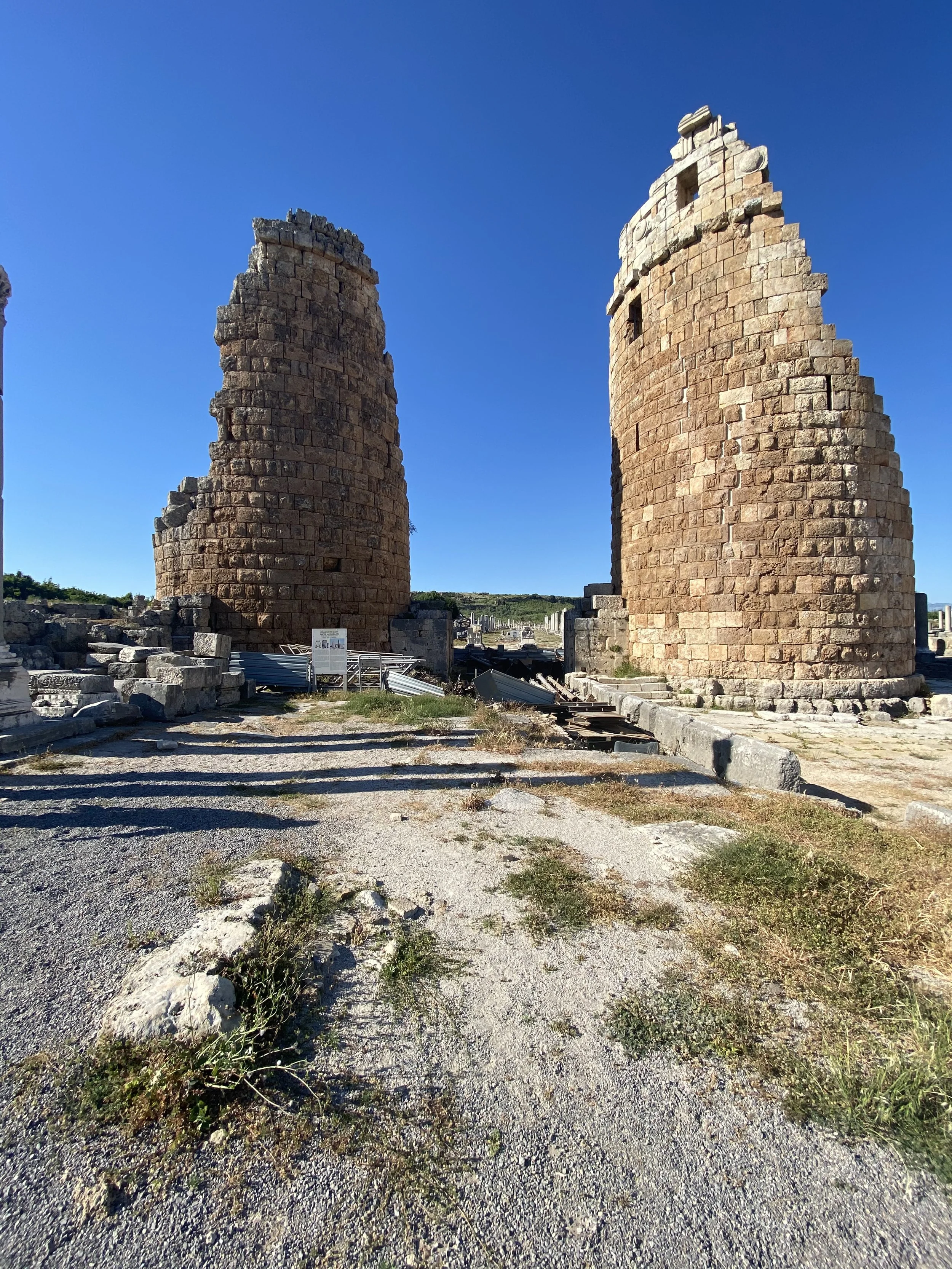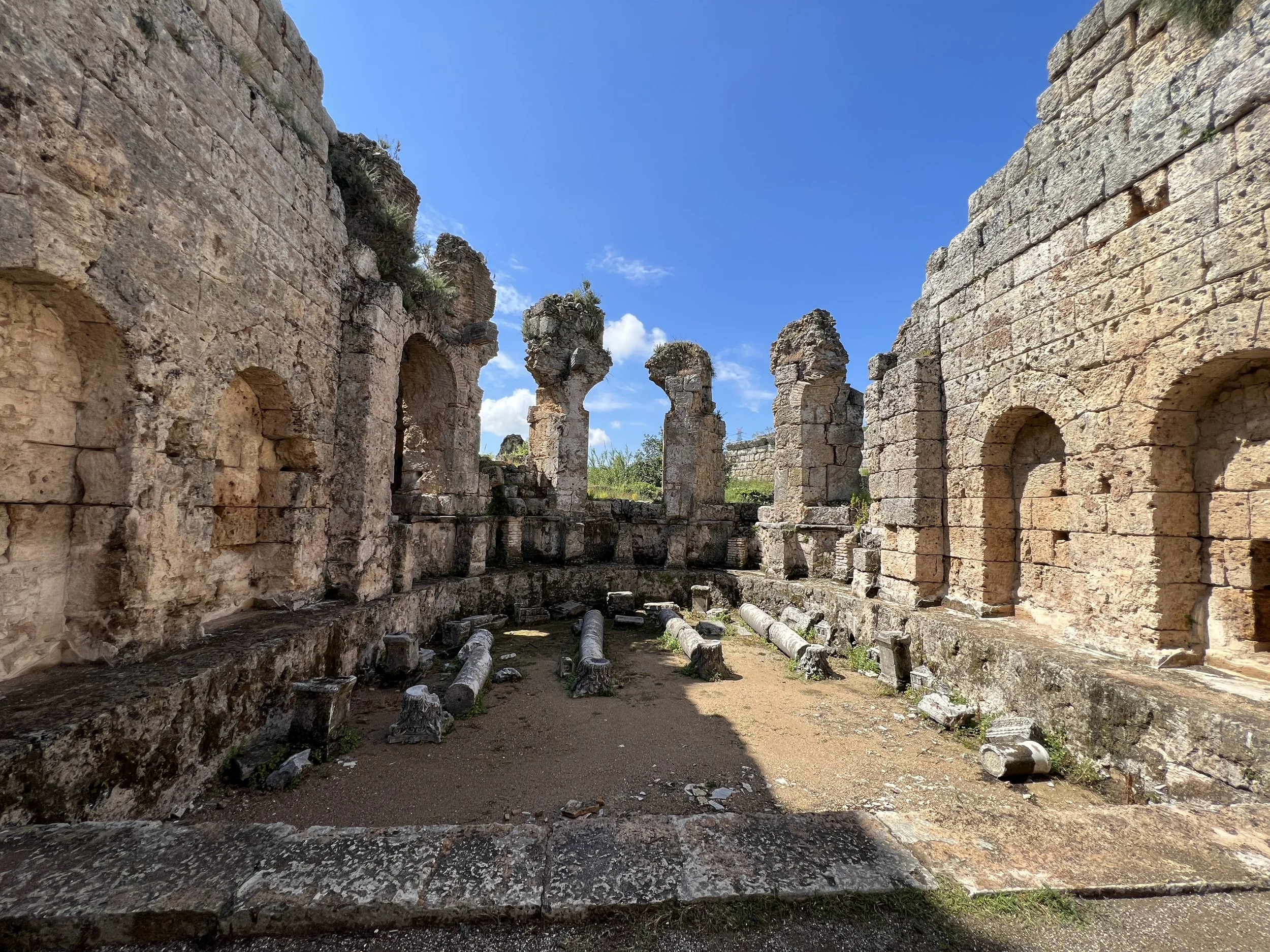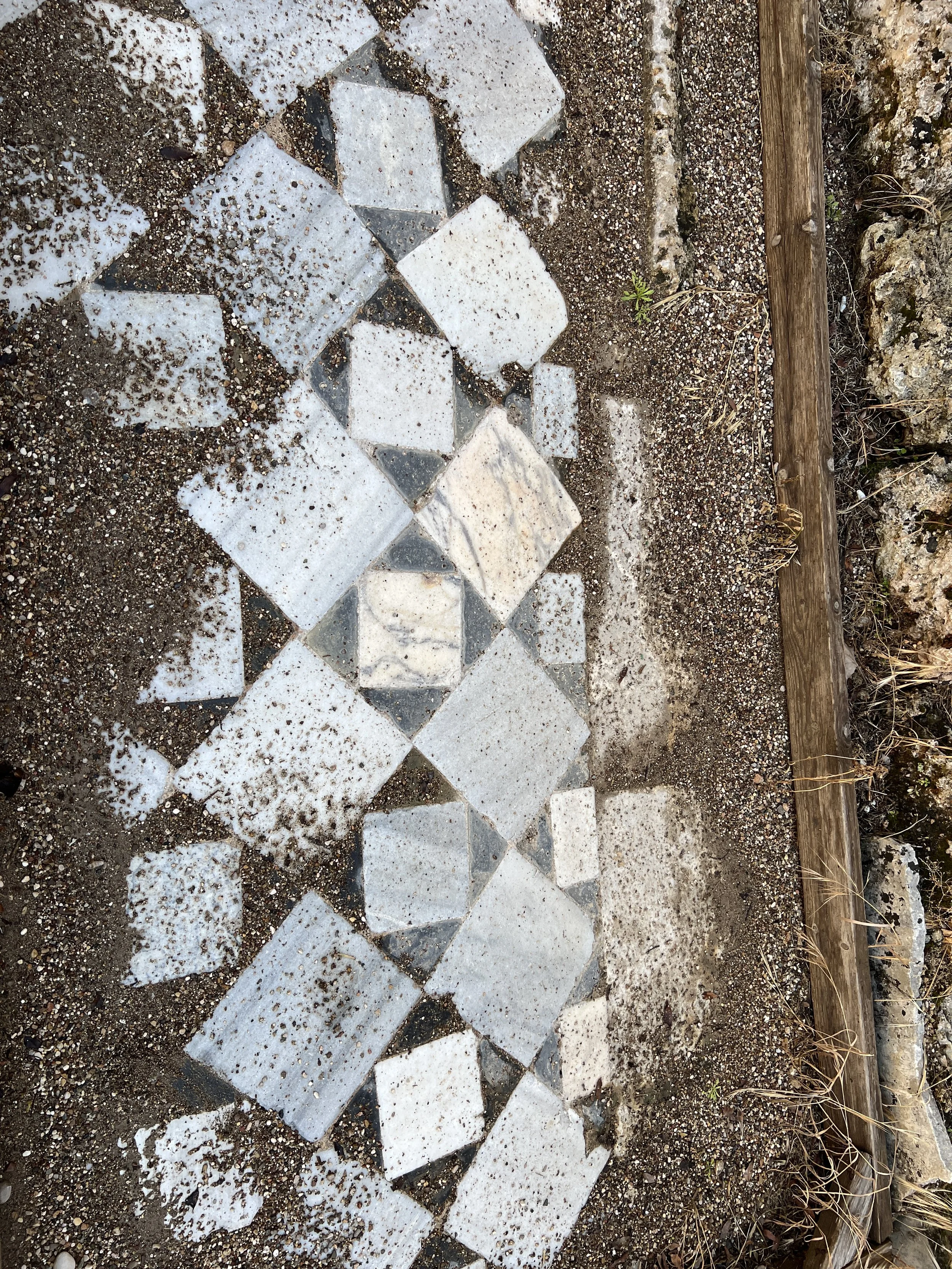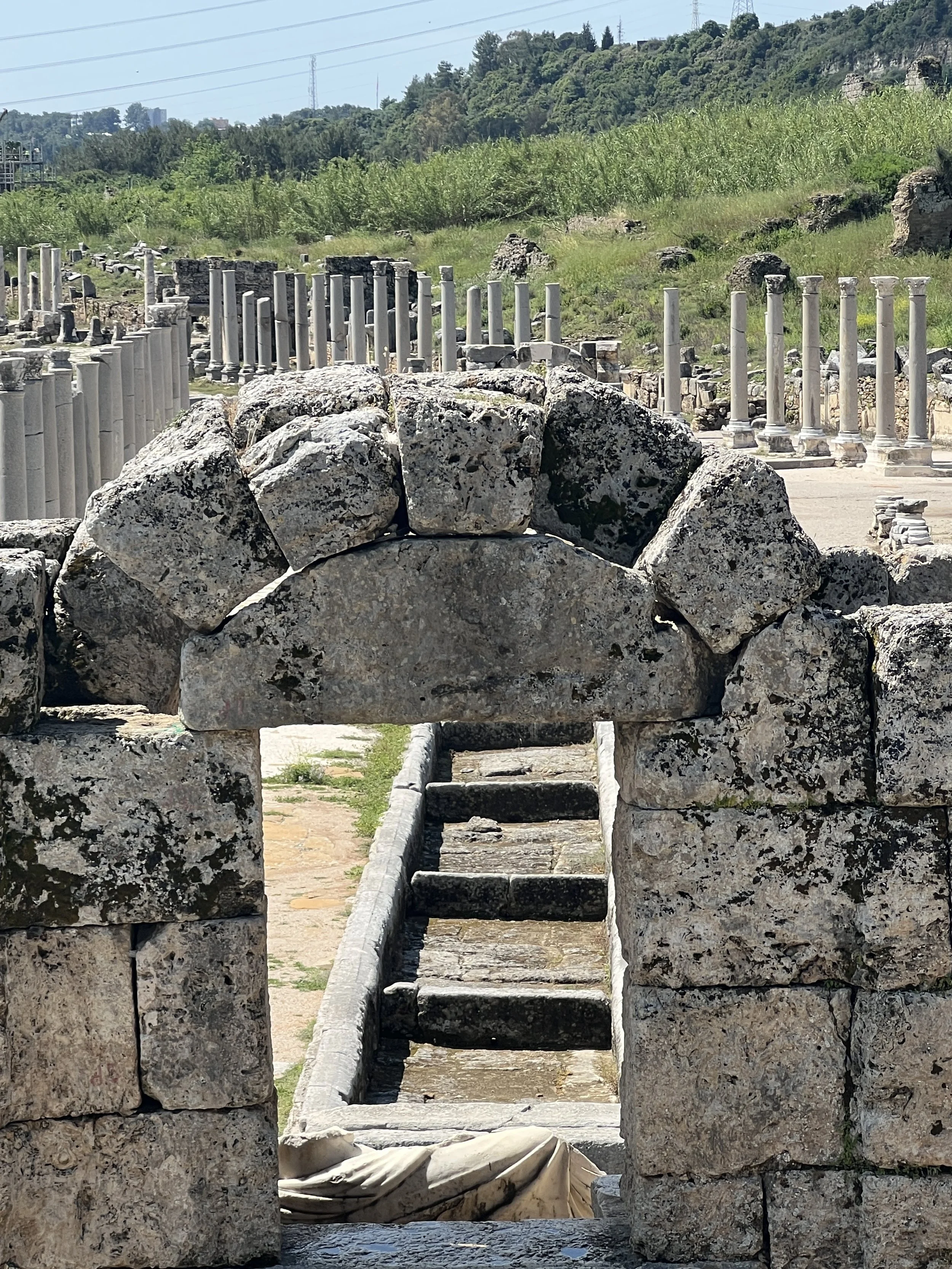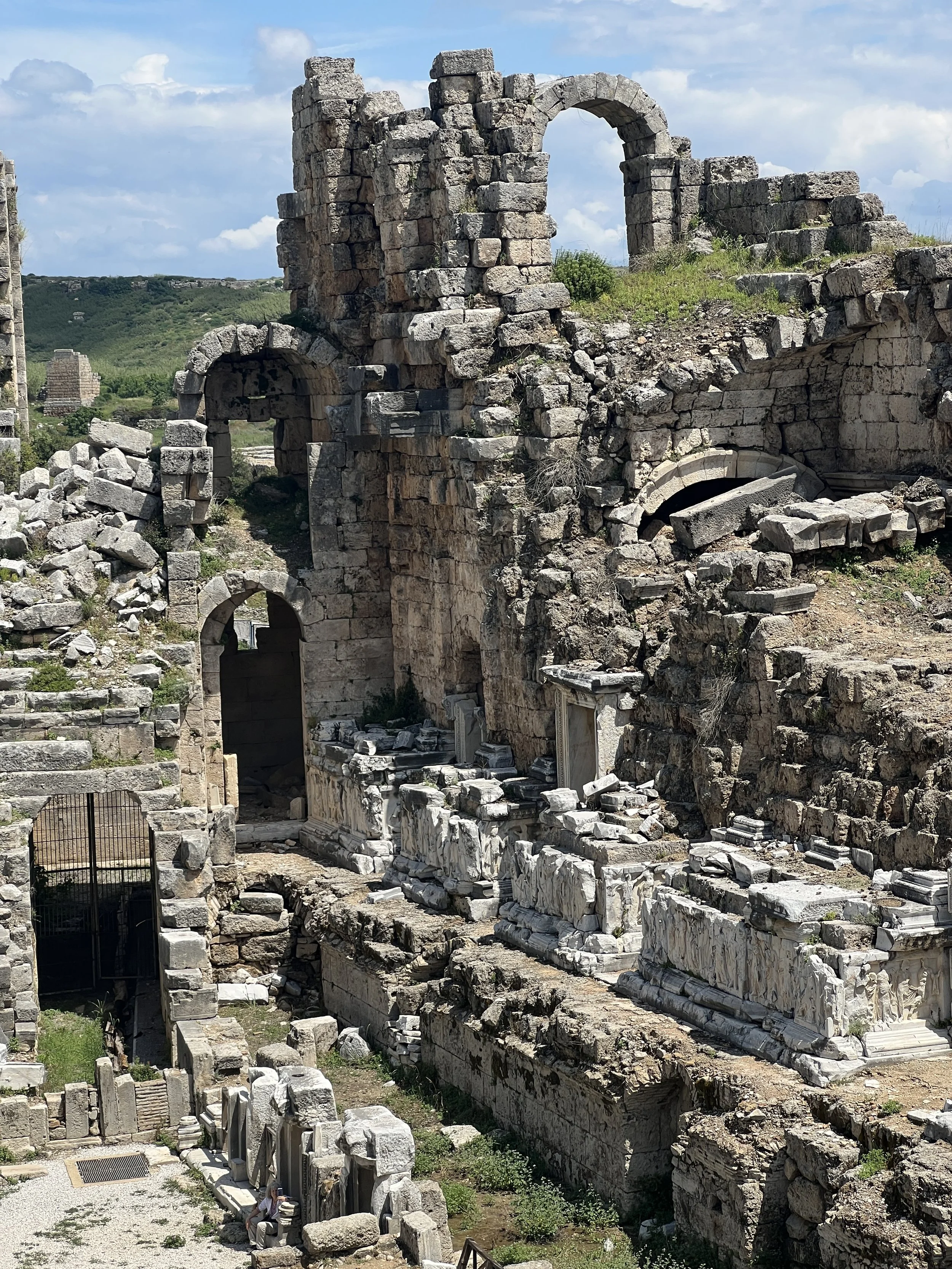Perga, Turkey
“Now Paul and his companions set sail from Paphos and came to Perga in Pamphylia. And John left them and returned to Jerusalem, but they went on from Perga and came to Antioch in Pisidia” Acts 13:13-14
Paul and Barnabus passed through the city of Perga twice during their 1st missionary journey in approximately 47-48 AD. At that time Perga was connected to the Mediterranean port of Attalia by road and by the Cestrus River.
The Hellenistic city of Perga was founded by Pergamum around 300 BC and came under Roman rule in the late second century BC. But the city was mentioned much earlier in a Hittite treaty document from the 13th century BC.
As you enter the archeological site you pass first through a Roman city gate, and then through and earlier 3rd century BC tower gate from Hellenistic times - this would have been the gate that Paul and Barnabus passed through on their travels. When we visited in May, there was a reconstruction project underway around the old gates - our pictures from a few years earlier have a better view.
To the right of the gate complex is an agora with remains of a colonnade surrounding it and a large fountain structure in the center from the Byzantine era. You can walk into the base and see the clay pipe works of the fountain.
The main colonnaded street runs north south with a water channel in the center. The city had six nymphaeum’s at its peak. The north Nymphaeum (dating from after Paul’s time) is still impressive with a statue of the river god Cestrus. This is at the base of the acropolis and would have had water cascading out of it into the central channel.
The south baths are clear examples of the various components of a bath complex; caldarium/hot bath, tepidarium/warm, frigiardium/cold bath and a swimming pool and changing area (apodyterium). The hypocaust heating system is still visible. Holes on the walls that anchored marble paneling are visible.
Outside of the Hellenistic city walls are the theater and stadium. Both are Roman era. The stadium has an area at the north end for gladiator fights.
The west gate led to a necropolis and to the via Sebaste that Paul and Barnabus no doubt traveled on to reach their next destination- Antioch Near Pisidia.
Gates of Perga

